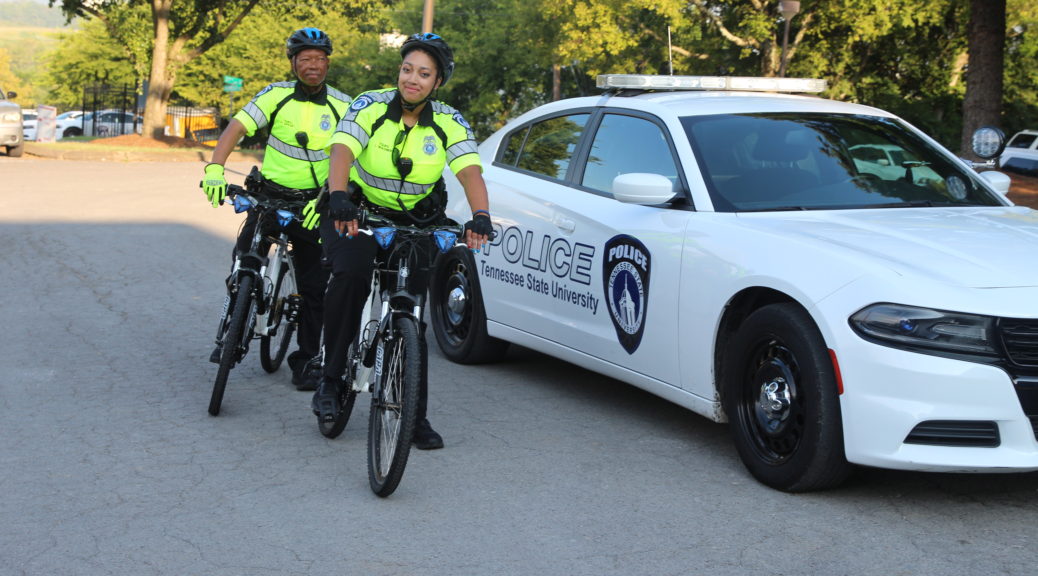NASHVILLE, Tenn. (TSU News Service) – Tennessee State University is continuing to take steps to make sure it remains one of the safest college campuses in the country.
As part of President Glenda Glover’s plan to improve campus safety, the university has installed new emergency call phones, added more security cameras, increased campus lighting, and installed fencing and bollards around the campus, among some of the upgrades.

“The university has worked diligently to improve safety on and around the campus,” says Dr. Curtis Johnson, TSU’s chief of staff. “This is just a benchmark of where we are thus far with the many things that the president has mandated in her campus safety initiatives.”
Ten new emergency call phones have been installed, and more are expected. The lighting improvement involves mainly replacing lighting fixtures with new LED fixtures, which will increase the amount of lighting in those areas. And cameras have been installed throughout the campus. All of the campus entrances are now equipped with a camera view. The new cameras, which have improved visual quality, also have features like license plate recognition and appearance recognition, say TSU officials.
Last month, the National Council for Home Safety and Security ranked TSU among the safest college campuses in the nation in its 2019 report of Safest Colleges in America.
The report ranked TSU No. 46 of the 490 colleges rated, using law enforcement and FBI data on crime rate and police adequacy.
“We continue to make a concerted effort to do what we can to provide the safest environment that we possibly can,” says TSU Police Chief Greg Robinson, who recently received a prestigious international campus safety award. “One of the things our officers have really brought with them is the service mindset, meaning they’re willing to do whatever they can to serve the TSU community.”
In collaboration with campus police, TSU has also initiated a number of other programs in campus safety and crime prevention that have yielded measurable results. The university now has the only co-ed R.A.D., or Rape Aggressive Defense program. RAD, a self-defense program opened to students, faculty and staff, emphasizes awareness, prevention, risk reduction and avoidance. The 12-hour class is taught over the course of three days in four-hour sessions.
In 2016, TSU and the Nashville Metro Police Department formed what’s believed to be the nation’s first Collegiate Citizens Police Academy. Students in the five-week training program are exposed to various aspects of police work, including domestic violence investigation, and making split-second decisions.
Graduates of the program make up what’s called Tiger Patrol and work in shifts to guide fellow students on campus, or alert the police if a situation warrants it. More than 50 students have participated in the program since its inception about three years ago.
To learn more about security on TSU’s campus, visit http://www.tnstate.edu/police/safety/.
Department of Media Relations
Tennessee State University
3500 John Merritt Boulevard
Nashville, Tennessee 37209
615.963.5331
About Tennessee State University
Founded in 1912, Tennessee State University is Nashville’s only public university, and is a premier, historically black university and land-grant institution offering 38 bachelor’s degree programs, 24 master’s degree programs, and seven doctoral degrees. TSU is a comprehensive research intensive institution with a R-2 Carnegie designation, and has a graduate school on its downtown Avon Williams Campus, along with the Otis Floyd Nursery Research Center in McMinnville, Tennessee. With a commitment to excellence, Tennessee State University provides students with a quality education in a nurturing and innovative environment that prepares them as alumni to be global leaders in every facet of society. Visit the University online at tnstate.edu.
